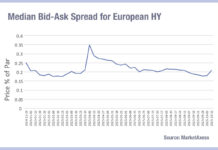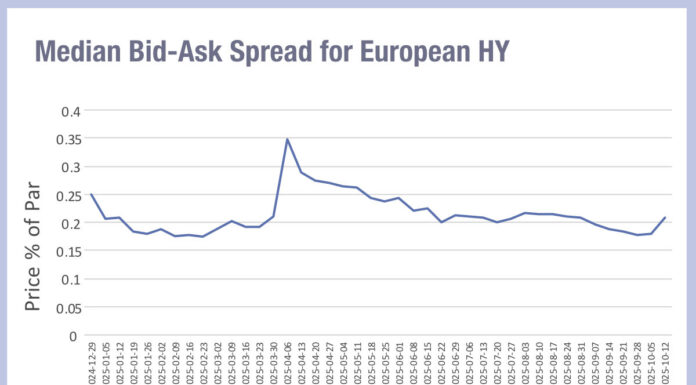Portfolio trading has grown so much, so quickly that it’s even surprised us. When we first launched the functionality, which allows traders to package multiple bonds into a single basket of buys and sells, negotiate a portfolio level price, and execute the trade in a single electronic transaction, we saw it as a targeted efficiency play.
That was in 2019, and our focus was primarily on the ETF ecosystem where large asset managers were doing block-sized trades with a handful of liquidity providers. We felt that by streamlining this labor-intensive, spreadsheet-based process, we could improve workflows and make our platform more user friendly.
We were right, but we underestimated just how popular the protocol would become and how – just a couple of years after its launch – portfolio trading would become a key factor in opening up liquidity and improving execution quality for the buy-side.
The numbers tell the story. In the third quarter of 2021 alone, Tradeweb saw $13 billion in total high yield volume, an increase of 21% over Q2 figures. Moreover, these trades were executed by a global mix of 145 users representing 69 different companies worldwide.
Ted Husveth, Tradeweb’s Managing Director for US Credit, recently discussed the phenomenon with TraderTV’s Dan Barnes. Explaining that Tradeweb has continued to see rapid expansion for portfolio trading across several different geographies, Husveth helped put some context to those numbers.
“Portfolio trading really started in investment grade and high yield in the US,” Husveth said. “As the dealer community has started to invest in portfolio trading, we’ve seen that same pattern start to play out in Europe, where portfolio trading has grown tremendously over the last few years. Three, four years ago, portfolio trading really wasn’t a thing in Europe, and now we’re seeing billions a week trade just on our platform in portfolio trading. We’re also seeing huge growth in emerging markets and in global emerging markets portfolios, so we’re seeing more and more emerging markets investors looking to engage; more and more market making desks looking to build up their capabilities for portfolio trading.”
What’s driving the trend?
According to Husveth, the global expansion of portfolio trading is largely being fueled by the underlying speed and efficiency of the process, but also a growing sense that the protocol is improving execution quality.
“The most important thing to our clients is that they’re getting everything done that they need to get done in a timely manner. We are seeing some portfolio trades that are five hundred, eight-hundred line items, which historically would have taken a day or two to resolve, getting done within a half an hour to an hour, Huseveth said. “But that’s only part of the equation. We’re also hearing from clients that they really see benefits in having aggregate level statistics to see whether they are hitting a particular yield target or target for execution costs. The portfolio trade brings all of that data into a single, trackable data set.”
To that end, Tradeweb has also introduce brand new portfolio trading functionality, which allows US and European clients to electronically execute portfolio trades at end-of-day prices. This new Trade at Close functionality gives clients surety of execution, the ability to transfer significant amounts of risk and protection from information leakage in a completely passive trade.
According to Husveth, this steady stream of improvements to the portfolio trading workflow has many clients looking for more. “We’re hearing it from the dealer community and the buy-side that they want to see more and more potential asset classes added to what could be traded as a portfolio trade, so we only see this growing,” he said.
To view the full TraderTV segment with Husveth, please click here. For more information on Tradeweb’s portfolio trading functionality, please click here.
Related Content
The Introduction and Initial Impact of PT
Deciphering the Size of the Portfolio Trading Market
©Markets Media Europe 2025













